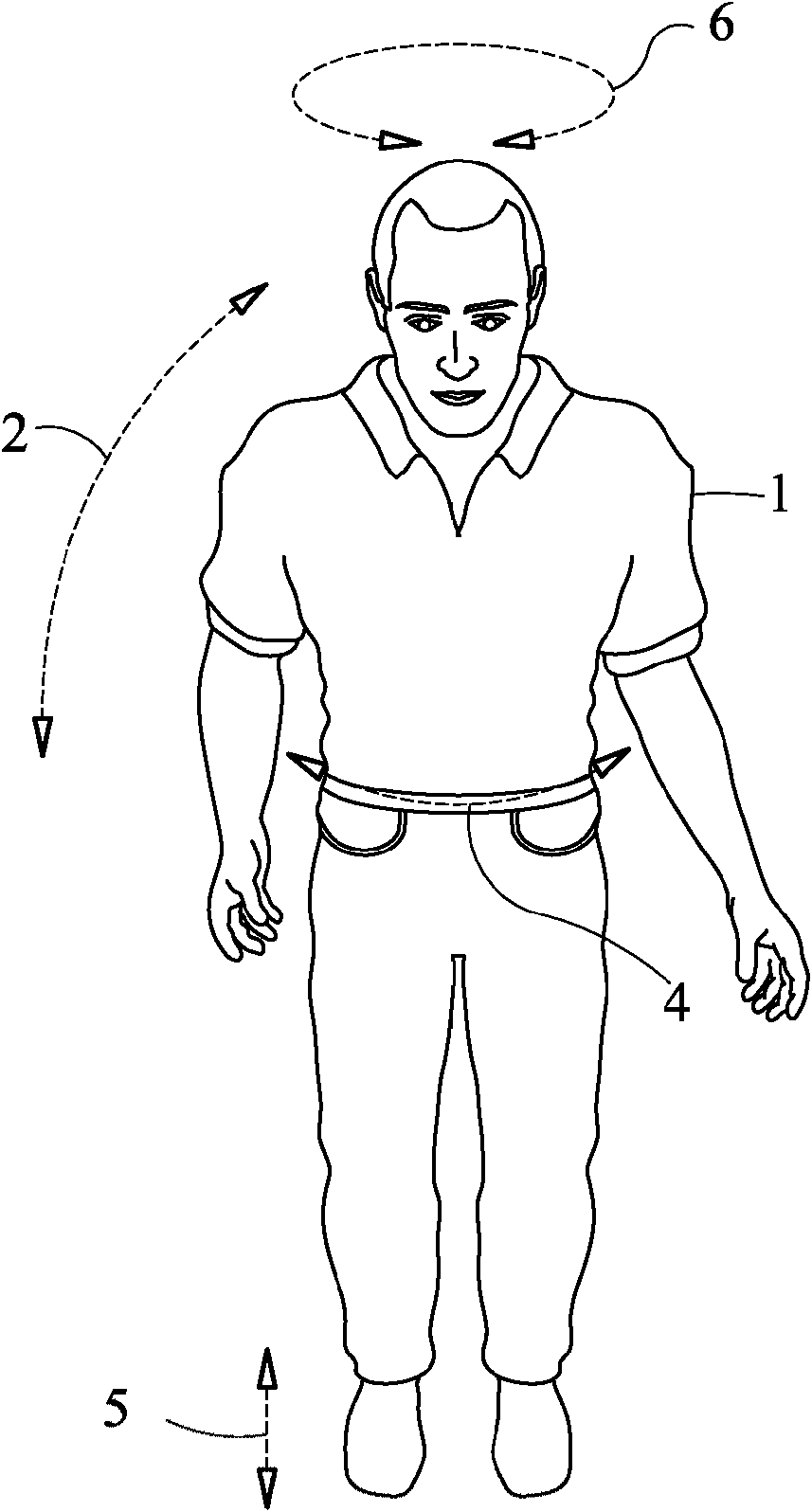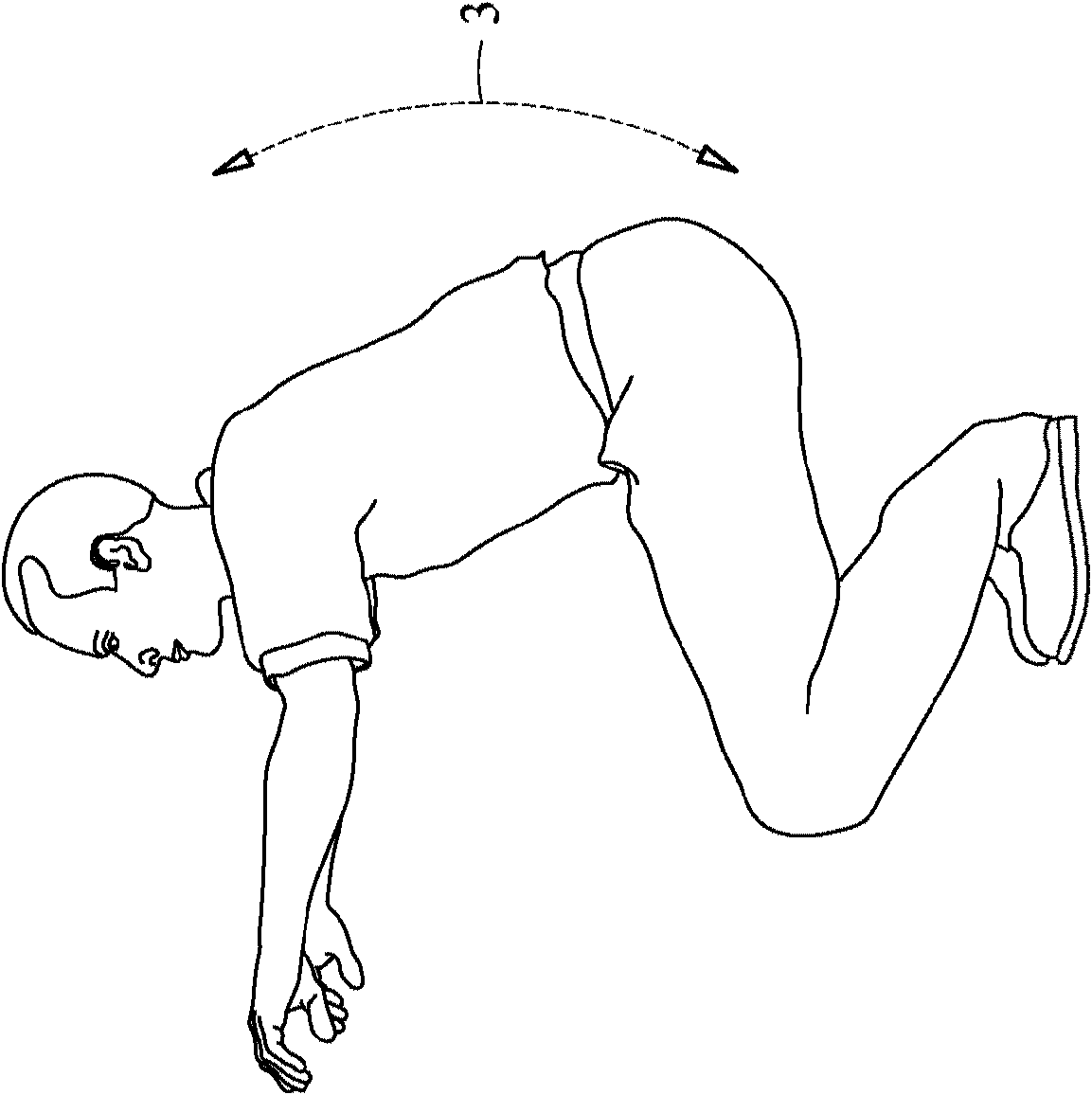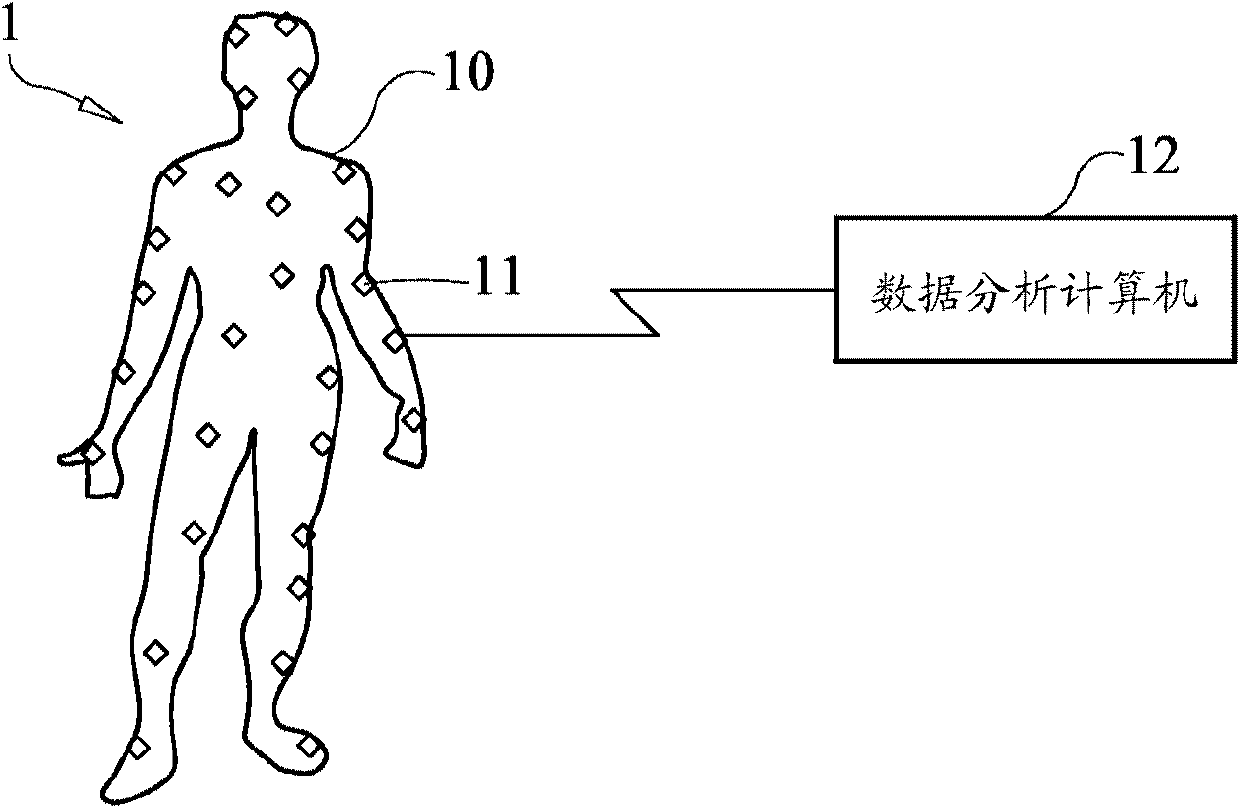Characterizing a physical capability by motion analysis
A technology for sports tasks and body parts, applied in the direction of sports accessories, gymnastics equipment, instruments, etc., can solve the problems of lack and limitation of tools and technical program development, and achieve fast and relatively automatic management
- Summary
- Abstract
- Description
- Claims
- Application Information
AI Technical Summary
Problems solved by technology
Method used
Image
Examples
Embodiment 1
[0033] Example 1 - Back Pain Assessment
[0034] In the case of back pain assessment, a group of subjects with known impairments of varying degrees were tested.
[0035] From a clinical point of view, a comprehensive set of movements to be performed by the subject is prescribed, while a comprehensive set of parameters characterizing those movements are acquired. Figure 1A with 1B A human body 1 and various possible prescribed movements are shown. For example, the subject may be instructed to bend 2 in one or more specific directions, stand up from a sitting position 3, twist body parts to varying degrees 4, walk normally, and turn or move various body parts 5,6. Exercise can be repeated many times. Prescribed exercises may include those performed with weight bearing as well as those performed without weight bearing or with varying degrees of weight bearing. Both motions involving biomechanically open kinetic chains and closed kinetic chains can be employed.
[0036] Tho...
Embodiment 2
[0040] Example 2 - Masquerade Assessment
[0041] A second application example, also related to back pain, is a protocol for the detection of malingering or "trying to be real". Rather than yielding a scaled index of back health, the protocol generates a two-state classification of inauthentic / authentic effort or spoofed / non-spoofed within a stated confidence level. Following the teachings herein, for both actual back pain patients and control subjects, possible ranges of motion and measurements of those motions were hypothesized, and information about those specific factors was measured and analyzed. A premise of this assessment is that chronic back pain will result in a very consistent movement profile when entering the "pain point" while performing prescribed movements. In other words, if a subject is asked to perform a task that causes back pain, he or she will experience back pain at the same point during the movement each time the task is performed. And, it is also a...
Embodiment 3
[0045] Example 3 - Golf Ball Performance Index
[0046] An example of a sporting performance consistent with the theories taught herein is the "Golf Performance Index." The GPI score is a scale rating of the overall level of performance of the golf skill. One way to think about this is as the process of transforming data comprising a time series of values representing a person's motion to provide an objective and meaningful assessment of that person's golf swing rating. When learning new swings, subjects may make steady progress in their mastery of the new skill, which in fact may produce erratic end results. When training others or self-training, there is value in objectively evaluating progress in learning that swing in ways other than the end result. It is desirable to determine the overall figure of merit for swing performance based on minimal measurements (for cost reasons, and to reduce the golfer's burden of intervening instrumentation). The expected swing qualit...
PUM
 Login to View More
Login to View More Abstract
Description
Claims
Application Information
 Login to View More
Login to View More - R&D
- Intellectual Property
- Life Sciences
- Materials
- Tech Scout
- Unparalleled Data Quality
- Higher Quality Content
- 60% Fewer Hallucinations
Browse by: Latest US Patents, China's latest patents, Technical Efficacy Thesaurus, Application Domain, Technology Topic, Popular Technical Reports.
© 2025 PatSnap. All rights reserved.Legal|Privacy policy|Modern Slavery Act Transparency Statement|Sitemap|About US| Contact US: help@patsnap.com



